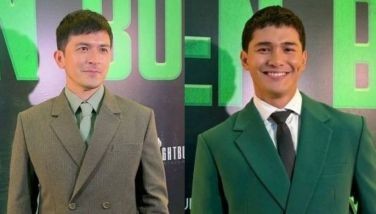A most unlikely star for The Kite Runner
Khalid Abdalla would hardly seem a candidate to star in The Kite Runner. He hadn’t read the source novel when he auditioned for the role of Amir (the character’s journey back to Afghanistan to atone for childhood mistakes is the story’s main plot), didn’t speak a word of Dari and had acted in only one prior film. But that film was the Oscar-nominated United 93, and his memorable performance as Ziad Jarrah happened to grab the right people’s attention.
Below he talks about his new movie:
Were you a fan of the book before auditioning for the role of Amir?
I always wish I could say that I read it before I was asked to audition for it, but I hadn’t. I first heard about it when I was asked to audition for it. But then I read it immediately. I went out and bought two copies, in fact. I read it in a day and thought it was an extraordinary story.
You have a strong background in theater. How does that come into play when filming a feature, like United 93 and The Kite Runner?
Obviously there’s a huge difference between the two mediums, but essentially you’re dealing with the same material. In some ways, it’s a different way of expressing it and you’ve got different means to do so. As an actor, it feels kind of similar. But United 93, it was a totally unorthodox filming experience. Our average take was 25 minutes and our longest take was an hour and 15 minutes, which is kind of unheard of — and it was entirely improvised. I guess a theater background helped with that because you’re running at it in long sequences, but each film comes with its own challenges. The essential thing that binds them all together is trying to tell stories for audiences, whether it’s for theater or film. Being able to share my experience with people is what I love.
Amir is such a well-known character from the novel. How did you approach portraying him onscreen?
I guess it really started for me after the first audition. Marc Forster called me to tell me, “It’s you, it’s you. But first, we have to go to Afghanistan to find someone to play the younger Amir.” So they went to Afghanistan for three months to search for as many people as they could and a month and a half later, they found the boys. During that time I didn’t want to get into the role, I was being held back like a bull. I really wanted to go at it, but I felt that if I did, I wouldn’t get the part — kind of a superstitious feeling. Then finally with six days notice I got a call saying, “We’ve found the boys. Get on the plane.” Six days later, I’m in Kabul.
I spent a month in Afghanistan and that month was absolutely extraordinary and crucial. I was born in Scotland, brought up in London, my parents are Egyptian, my father was born in Illinois. I’d never been to Afghanistan. In that month, I was in total immersion. I banished English completely, had Dari lessons five hours a day. I ate everything I had never eaten before, I went everywhere that was referenced in the book, I built my reward I got at the end was being able to speak the language, which I managed to do in a month somehow.
Do you think the film will help some people’s preconceived notions about Afghanistan?
I certainly hope so. That is definitely what the book is about. So many people say that in reading the book, they thought of Afghanistan in a totally different way. I hope that when people see the film, they feel like they traveled to Afghanistan. When you have a meeting with someone you’ve never met before from a different country, you never meet them through a bomb. You meet them through their own stories and hopefully that’s what the film does.
A lot of the appeal of the book has to do with the fact that this friendship could take place anywhere. Many readers can relate to the story, no matter where they come from.
It’s a quintessentially American story, just 100 years late. It’s a story of leaving your homeland to come and make a life in America. It is a story that so many immigrants in this country have lived through. With my background and this opportunity to travel to Afghanistan, I like to think of myself as a person who is not so interested in borders. I’m interested in people and their stories.
One of the things that struck me about The Kite Runner is how many Afghan refugees live in this country.
Absolutely. Afghanistan is a country that had at one point over six million refugees. When you think of the traumas that means for a whole country, the journeys they have had to make, the family members who have died along the way, a story like The Kite Runner becomes a drop in a nation. Most people don’t associate that with Afghanistan, they think of the people who brutalized the country rather than the people who were brutalized.
The friendship between young Amir and Hassan plays an integral part in the story, but as the adult Amir, you don’t have any scenes with them. Did you watch their scenes being filmed?
I was there every day. I think there were only 10 shots that I missed. I met the boys for the first time in Kabul. We learned how to fly kites together. I was there each day supporting them and they came to support me as well. We developed a special relationship.
The children in the film were incredible.
They were extraordinary. It’s a really special age as well. It’s an incredible act of casting of well. It’s kind of there in the book, that final moment of childhood. A year-and-a-half later, they start becoming teenagers. And that’s a very different age.
- Latest
- Trending


















 Partner
Partner












